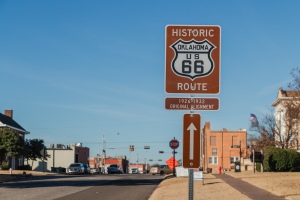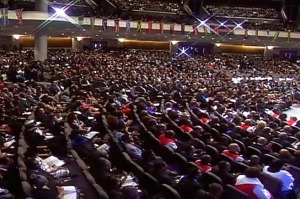The Government of God
An Easter Message
On a spring day in the year 30, two processions entered Jerusalem. It was the beginning of the week of Passover, the most sacred week of the Jewish year. In centuries past, Christians have celebrated this day as Palm Sunday. For many, this week, which ends with Easter, is the most sacred week of the Christian year.
One was a peasant procession, the other an imperial Roman procession. From the East, Jesus rode a donkey down the Mount of Olives as his followers cheered. Jesus was from the peasant village of Nazareth, and his followers came from a peasant class that was considered beneath both the Jewish and Roman rulers.
On the opposite side of the city, from the West, Pontius Pilate, the Roman governor, entered Jerusalem at the head of a column of imperial soldiers and cavalrymen with pomp and circumstance. It was a statement of raw military might. As Marcus J. Borg and John Dominic Crossan write in The Last Week: What the Gospels Really Teach About Jesus' Final Days in Jerusalem (2006):
Imagine the imperial procession's arrival in the city. A visual panoply of imperial power: cavalry on horses, foot soldiers, leather armor, helmets, weapons, banners, golden eagles mounted on poles, sun glinting on metal and gold. Sounds: the marching of feet, the creaking of leather, the clinking of bridles, the beating of drums. The swirling of dust. The eyes of the silent onlookers, some curious, some awed, some resentful.
Pilate's procession displayed not only imperial power but also Roman imperial theology. The emperor was not simply the ruler of Rome; he was seen as the Son of God. Thus, for Rome's Jewish subjects, Pilate's procession embodied not only a rival social order but also a rival theology and, thus, a rival kingdom.
Jesus' procession, however, proclaimed a different kind of kingdom, a kingdom for here and now. As Christ teaches his disciples to pray, "your kingdom come, your will be done on earth as it is in heaven" (Matthew 6:10). This kingdom is based on love of humanity and peace where rulers were to be servants of the people. This was the kingdom of God.
Pilate's procession, however, proclaimed the power of empire-an empire of subjugation and violence where the people either obeyed or suffered. The two processions embodied the central conflict that led to Jesus' execution, and it is the same conflict that confronts Christians who dare speak the truth of Christ to power today.
As Jesus rode the donkey down the Mount of Olives to the city, he was surrounded by a throng of enthusiastic followers. They spread cloaks, strew leafy branches on the road and shouted, "Hosanna to the Son of David! Blessed is he who comes in the name of the Lord! Hosanna in the highest!" (Matthew 21:9). "Hosanna" is the Hebrew word meaning "Save, we pray."
The meaning of this demonstration has both political and religious connotations. It uses symbolism from the prophet Zechariah. According to Zechariah, a king would be coming to Jerusalem (Zion) "righteous and having salvation, gentle and riding on a donkey, on a colt, the foal of a donkey" (Zechariah 9:9). Zechariah 9:10 details what kind of king he will be:
I will take away the chariots from Ephraim and the war-horses from Jerusalem, and the battle bow will be broken. He will proclaim peace to the nations. His rule will extend from sea to sea and from the River to the ends of the earth.
Jesus the king, riding on a donkey, will banish war and violence from the land-no more chariots, war-horses or bows. He was a king of peace.
The message to the powers-that-be, as Borg and Crossan note, was clear: "Jesus' procession deliberately countered what was happening on the other side of the city. Pilate's procession embodied the power, glory, and violence of the empire that ruled the world. Jesus' procession embodied an alternative vision, the kingdom of God."
This contrast-between the kingdom of God, based on love of people and peace, and the kingdom of Caesar, based on subjugating people and violence-is central to the story of Christ. As such, Jesus' procession that day symbolized his direct and subtle undermining of both the political and religious establishments that ruled the world.
Of course, the Romans eventually came to see Jesus as enough of a threat to have him killed. In the time of Jesus, religious preachers and self-proclaimed prophets were not summarily arrested and executed. Nor were nonviolent protesters. Indeed, the high priests and Roman governors in Jerusalem would normally allow a protest, particularly a small-scale one, to run its course. However, the authorities were quick to dispose of leaders and movements that even appeared to threaten the Roman Empire.
The charges leveled against Jesus-that he was a threat to the stability of the nation, opposed paying Roman taxes and claimed to be the rightful King as Messiah of Israel-were purely political, not religious. To the Romans, any one of these charges was enough to merit death by crucifixion. But the gravest charge, for which Jesus was ultimately crucified, was stated in the inscription on the cross: "The King of the Jews." The Roman governor Pontius Pilate, who alone had the authority to execute Jesus, focused on his political identity: "Are you the king of the Jews?" (Matthew 27:11). This seems to be primarily what mattered to Pilate, whose job it was to uphold the religious, as well as the temporal, power of the deified Caesars.
Jesus does not deny the allegation which, if true, will lead to his death. He answers: "You are right in saying I am a king. In fact, for this reason I was born, and for this I came into the world, to testify to the truth. Everyone on the side of truth listens to me" (John 18:37).
Jesus' proclamation of the kingdom of God-also known as the Government of God-was a total reordering of both the spiritual and temporal life. Jesus' teaching on the Government of God, as seen, for example, in the Sermon on the Mount, is that the significance of the rule of God pertains to everything-marriage, money, personal relationships, community life, religion, politics and so on. Jesus also addresses prayer, faith, repentance, forgiveness, honesty and our relationship to God. And although the Government of God is far broader than politics, it has political ramifications. "The rule of God over everything is also God's rule over politics," writes Alan Storkey in Jesus and Politics: Confronting the Powers (2005). "It is the central truth of political life, the reference point for states, rulers, law, and justice-whether they recognize it or not. Logic requires it. How could the rule of God not apply to states and politics, as though God opted out of this part of their existence?"
Incredibly, Jesus had entered Jerusalem riding a donkey, proclaiming the Government of God and eventually laying it all before the people and their rulers. That is why Jesus was able to say to Pilate: "You would have no power over me if it were not given to you from above" (John 19:11). Earlier, Jesus had told his followers not to fear rulers because they can only kill you (Matthew 10:28). Now standing before the Roman governor with his back ripped open and bleeding, Jesus flatly refused to relinquish the fact that the Government of God is for here and now. As he told Pilate: "My kingdom is not of this world. If it were, my servants would fight to prevent my arrest by the Jews. But now my kingdom is from another place" (John 18:36).
In other words, Jesus told Pilate that his kingdom of peace and love does not originate of "this world" of violence, avarice and greed. It originates from God. Thus, Jesus will not resort to the tactics of rulers such as Pilate and maintain power by force.
Jesus' government points to another way.



























